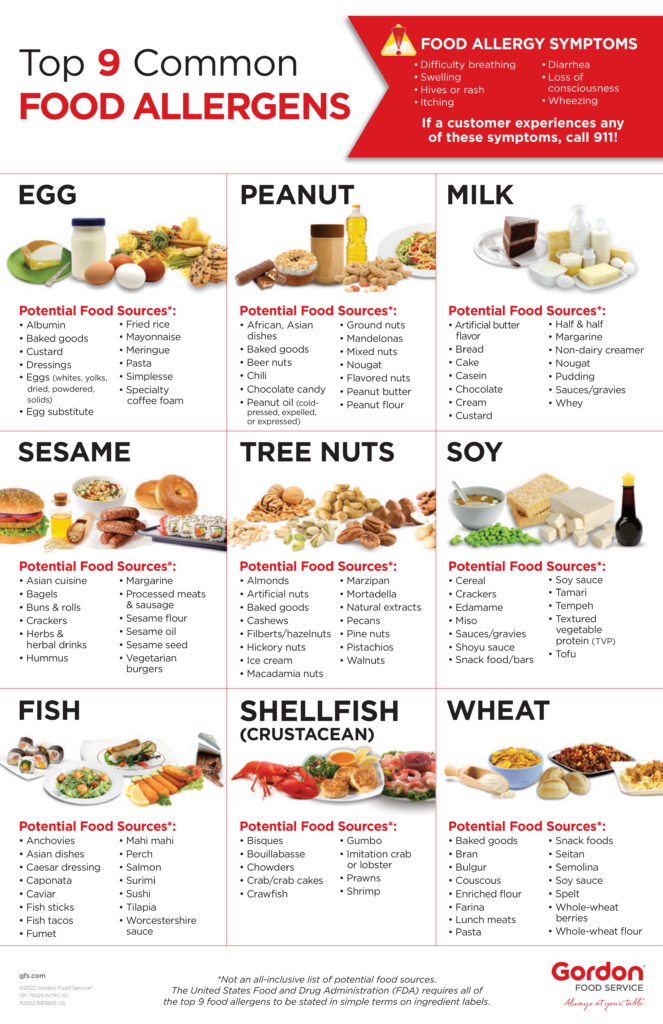Supply-chain challenges have hit foodservice operators hard, especially those serving guests with allergies or specialty diets. That includes college and university dining, where menu substitution and guest accommodation are a big part of service.
Even though most operators recognize the challenges go beyond the control of distributors and vendors, it’s up to each program to communicate product changes that affect meals. To help, your foodservice team can focus on four areas to increase satisfaction.
1. Build trust
Being honest and transparent is critical in order to keep your guests safe. If you are aware of students or frequent guests with food allergies, you can create trust and respect by reaching out to them directly. Let them know what you know about supply-chain difficulties, and explain what you are doing to keep their safety top of mind.
2. Control what you can
The substitutions that occur may be out of your control, but you still have the ability—and the responsibility—to educate and train your team about food allergies or specialty diets. Consider making this an ongoing focus. Gordon Food Service Training Topics can help you plan and deliver education. Increase trust by communicating with your guests how you educate and train your staff.
3. Relentless review
Today’s supply-chain challenges mean frequent substitutions or product alterations. Rapid changes make it critical to review the ingredients and allergen statements on the product directly rather than depend on online database sources that could be outdated. According to FARE (Food Allergies Research and Education), even if you have purchased a product several times, it is necessary to review it every time. As you review items, consider creating a process or checklist to organize which items, substitute items and recipes include specific allergens. This creates a helpful back-of-house reference or a resource for your guests.
4. Communicate with confidence

Depending on your operation, it may be important for the legal or marketing teams to review any communication or disclaimers. The goal is to keep the messaging consistent with your brand. Additionally, if your operation has registered dietitians available, then encourage your students or guests to connect with them to discuss alternatives and options.
To learn more about this topic, visit these resources:
Gordon Food Service Food Allergen Awareness and Intolerances Information
The School Nutrition Association’s Food Allergy Resource Center
Download the Top 9 Common Food Allergens poster to post in your cafeteria











